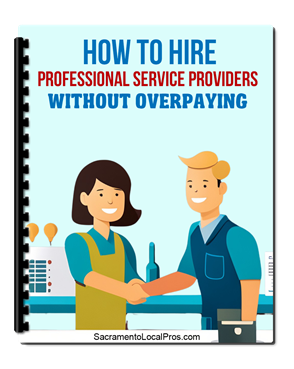Purchasing a home is one of the most significant financial decisions you'll make in your lifetime, and the stakes are even higher during periods of high inflation.
Rising costs can impact everything from mortgage rates to the price of everyday essentials, leaving buyers to carefully balance their options.
While it's still possible to find the home of your dreams and make a sound investment, avoiding common pitfalls is crucial to protecting your finances and making informed decisions.
By understanding the key mistakes that many buyers make, you can confidently approach the process and secure the best possible outcome.
You're about to learn how to safeguard your investment and set yourself up for success in today’s challenging market.
1)) Ignoring Interest Rate Trends
Understanding how interest rates fluctuate is crucial when navigating the housing market during periods of high inflation.
Interest rates have a direct impact on mortgage payments, influencing how much you ultimately pay over the life of the loan.
Failing to account for these trends can lead to financial strain, as higher rates increase monthly costs significantly.
Buyers should stay informed by monitoring economic updates and consulting with financial experts to make well-timed decisions.
A proactive approach ensures that you remain prepared, avoiding potential pitfalls and securing a loan structure that aligns with your budget.
2)) Overextending Your Budget
Deciding to purchase a house during a period of high inflation requires careful consideration and thorough financial planning.
High inflation often leads to increased interest rates, which can significantly raise monthly mortgage payments and overall borrowing costs.
It is crucial to assess your financial situation realistically and prioritize affordability to prevent overextending yourself.
Taking on a mortgage that stretches your budget too thin can result in financial strain, leaving you vulnerable to unexpected economic shifts or personal emergencies.
Evaluate your savings, consider potential long-term expenses, and explore ways to build a sustainable financial cushion.
Committing to a realistic budget not only safeguards your financial health but also ensures that homeownership remains a positive and manageable experience in the years to come.
3)) Skipping Mortgage Pre-Approval
Skipping the mortgage pre-approval step during periods of high inflation can lead to significant challenges in the home-buying process.
Pre-approval helps you understand your borrowing capacity, providing clarity on the price range of homes that are financially feasible for you.
Without pre-approval, buyers may face setbacks, such as delays in securing financing or losing out on competitive offers due to a lack of preparedness.
High inflation often leads to fluctuating interest rates, which can alter monthly payment amounts and overall affordability.
Going into the market without a clear understanding of these variables could result in financial stress or missed opportunities.
Taking the necessary steps to secure pre-approval ensures you are both informed and ready to act quickly in a competitive housing market, particularly when inflation creates uncertainty around costs and interest rates.
4)) Failing To Compare Mortgage Lenders
Failing to compare mortgage lenders during periods of high inflation can lead to costly mistakes that impact your financial health for years to come.
Different lenders offer varying interest rates, fees, and loan terms, which can significantly affect the overall cost of your mortgage.
High inflation often creates an unpredictable financial environment with rapidly changing interest rates that could vary widely between lenders.
By thoroughly researching and comparing lenders, you can identify the best possible terms and avoid paying more than necessary.
This process involves evaluating not only interest rates but also other factors like closing costs, loan flexibility, and customer service.
Taking the time to carefully review your options could translate to thousands of dollars in savings over the life of the loan, solidifying your financial stability in an uncertain economy.
5)) Neglecting Additional Home Costs
During periods of high inflation, it is critical to account for the various additional costs of homeownership to avoid financial strain.
Expenses such as property taxes, maintenance fees, insurance premiums, and utility bills often increase alongside rising prices, placing further pressure on household budgets.
Homebuyers who focus solely on the initial purchase price may overlook these ongoing responsibilities, which could lead to unexpected financial challenges down the line.
Careful budgeting and thorough research into these recurring expenses can help ensure a more realistic understanding of the true cost of homeownership, facilitating better long-term planning even in uncertain economic conditions.
6)) Rushing Into A Bidding War
Engaging in a bidding war during periods of high inflation can be a risky decision that significantly impacts your financial well-being.
While the competitive nature of such situations may drive buyers to make hasty decisions, it is crucial to remain cautious and strategic.
During times of economic uncertainty, property values may fluctuate unpredictably, and overextending yourself on a purchase could lead to financial strain in the long run.
Instead of getting caught up in the whirlwind of a bidding frenzy, take the time to evaluate the property's value in comparison to market conditions and your budget.
Patience and thorough market analysis can save you from committing to an overpriced property and help you secure a deal that aligns more closely with your financial goals and stability.
7)) Overlooking Neighborhood Research
Thoroughly understanding the community where a property is located is a critical part of the home-buying process, especially during periods of economic instability.
The surrounding area plays a significant role in determining the long-term satisfaction and financial return on investment of a home purchase.
Factors such as local amenities, school quality, public transportation options, crime rates, and future development plans can all influence the value and desirability of a property.
By conducting comprehensive research and visiting neighborhoods at various times of the day, prospective buyers can gain insight into the environment and assess whether it aligns with their lifestyle and long-term goals.
Ultimately, investing time in understanding the local area can reduce regret and foster confidence in the buying decision.
8)) Ignoring Property Inspections
During periods of high inflation, skipping property inspections can be a costly mistake for potential buyers.
Inspections provide invaluable insights into the condition of a property, revealing underlying issues such as structural damage, electrical faults, or plumbing concerns that may require extensive repairs.
With inflation driving up living expenses and maintenance costs, unexpected repairs can strain finances even further.
Buyers who bypass inspections risk facing significant financial burdens down the line, as they may inherit properties with hidden defects that are expensive to resolve.
Conducting thorough inspections before making a purchase is a critical safeguard, helping buyers understand the true condition of a property and avoid unforeseen expenses that could compromise their financial stability.
9)) Not Factoring In Future Inflation
Failing to consider future inflation when purchasing a house during a period of high inflation can lead to significant financial challenges down the road.
Inflation not only impacts the cost of goods and services but also influences interest rates, property taxes, and overall housing expenses.
Buyers who overlook this factor may find themselves struggling with rising costs that outpace their income growth.
Careful financial planning is essential to ensure long-term affordability, as locking in a fixed-rate mortgage or setting aside reserves for increased expenses can help guard against the unpredictable nature of inflationary pressures.
Being prepared can provide peace of mind and greater financial security in an uncertain economic environment.
10)) Waiving Contingencies Impulsively
Waiving contingencies during the home-buying process, particularly in a high-inflation environment, can lead to significant financial risks.
Contingencies serve as important safeguards that allow potential buyers to back out or renegotiate terms if specific conditions are not met, such as issues uncovered during a home inspection or difficulties securing financing.
By forgoing these protections, buyers may find themselves locked into a purchase that could later prove costly, whether due to hidden structural problems, overvaluation of the property, or unexpected financial hurdles.
High inflation often drives competitive markets, tempting buyers to make impulsive decisions to secure a property quickly.
However, evaluating the long-term financial impact and ensuring that comprehensive due diligence is conducted before waiving these important safeguards is crucial to avoiding future regrets and financial strain.
11)) Underestimating Emergency Savings
Purchasing a home during periods of high inflation can be an especially challenging endeavor, and one of the critical mistakes to avoid is neglecting to prioritize emergency savings.
High inflation often leads to rising costs of living, which can strain household budgets unexpectedly.
Without a robust financial safety net, any unexpected expenses—such as medical emergencies, home repairs, or sudden job loss—could jeopardize not only your ability to meet mortgage payments but also your overall financial stability.
It is essential to strike a balance between saving for a down payment and maintaining a reserve fund that covers at least three to six months of living expenses.
A strong emergency savings account provides peace of mind and ensures that unforeseen circumstances do not turn homeownership into an overwhelming burden.
12)) Overvaluing Short-Term Benefits
When considering the purchase of a home during periods of high inflation, it is important to look beyond immediate benefits and assess the long-term implications carefully.
While lower interest rates or short-term incentives may seem attractive, the broader financial picture must be evaluated to ensure that the purchase remains sustainable.
High inflation can lead to increased living expenses, maintenance costs, and fluctuating property values, which may erode the initial appeal of the decision.
Taking the time to analyze future affordability, potential market shifts, and overall financial resilience provides a more balanced perspective.
By prioritizing stability over short-term gratification, buyers can make more informed decisions that align with their long-term goals.
Conclusion
Adopting a proactive and mindful approach to managing finances is essential in navigating the complexities of economic challenges.
By establishing thoughtful spending habits, diversifying income sources, and pursuing strategies to safeguard the value of assets, individuals and businesses can create a buffer against financial instability.
These measures not only help in addressing immediate concerns but also contribute to building a foundation of resilience for the future.
Furthermore, staying informed about market trends and seeking professional advice can empower better decision-making, ensuring that long-term financial goals remain within reach.
Taking these steps fosters greater confidence and security, enabling individuals to face uncertain times with clarity and preparedness.
Download Our Free E-book!








